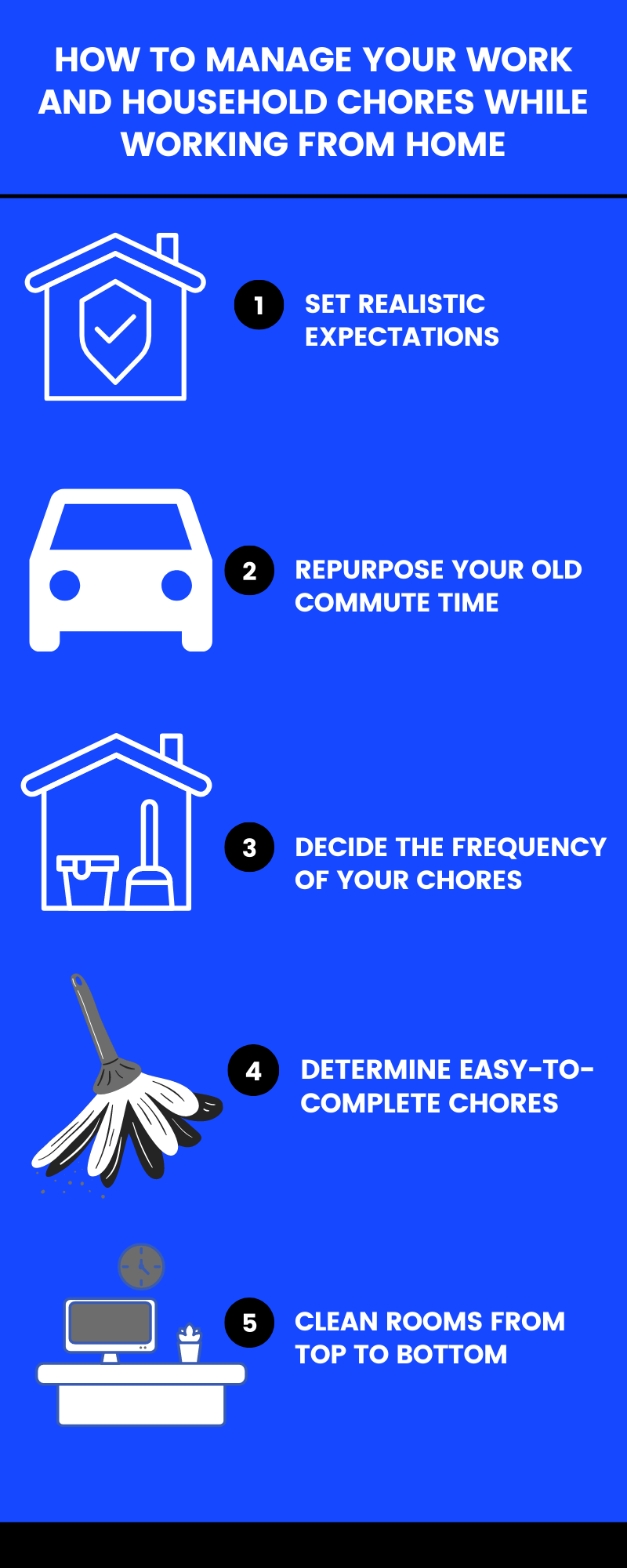
Navigating the differences in household responsibilities can sometimes feel like a tricky task. From dividing chores to managing childcare, finding a balance that works for everyone can be a challenge. In this article, we will explore some practical strategies and effective communication techniques that can help you and your partner navigate these differences with ease. Whether you’re a new couple or have been together for years, these tips will empower you to create a harmonious and fair division of household tasks.

This image is property of uploads-ssl.webflow.com.
Understanding Different Perspectives
Recognizing Gender Roles
When it comes to household responsibilities, it is important to recognize the influence of gender roles. Traditional gender roles have assigned certain tasks and duties to men and women based on societal expectations. However, it is essential to understand that these roles are not fixed and can vary depending on individuals and cultures. By being aware of these preconceived notions, you can better appreciate and address the impact they may have on how responsibilities are perceived and allocated within your household.
Considering Personal Backgrounds
In addition to gender roles, personal backgrounds also play a significant role in shaping our perspectives on household responsibilities. Our upbringing, cultural traditions, and personal experiences greatly influence our beliefs and attitudes towards tasks such as cooking, cleaning, childcare, and finances. It is crucial to understand and appreciate these differences in order to foster a harmonious division of labor within your household.
Identifying Communication Styles
Understanding and accommodating different communication styles can greatly enhance your ability to navigate household responsibilities effectively. Some individuals may prefer direct and explicit communication, while others may rely more on non-verbal cues or prefer a more subtle approach. Therefore, paying attention to and respecting each other’s communication preferences can help create a more open and productive dialogue when discussing and allocating household tasks.
Establishing Shared Values and Goals
Defining Individual Priorities
Each person in a household is likely to have their own priorities when it comes to tasks and responsibilities. Openly discussing and sharing these individual priorities allows for a better understanding of each person’s needs and desires. By acknowledging and respecting these priorities, you can work towards a more balanced and equitable distribution of responsibilities that takes into account everyone’s interests.
Creating a Household Vision
A household vision is a shared understanding of what you, as a household, want to achieve and how you want to live. This can include aspects like maintaining a clean and organized living space, ensuring everyone’s well-being, or achieving financial stability. By creating and frequently revisiting this vision, you can align your goals and values, making it easier to determine how responsibilities should be allocated and ensuring everyone is working towards a common purpose.
Setting Mutual Expectations
To maintain harmony within a household, it is crucial to establish and communicate mutual expectations. Clearly defining what is expected from each member in terms of specific tasks, timelines, and quality standards can help avoid misunderstandings and conflicts. Setting these expectations collectively allows for open discussion and negotiation, ensuring everyone’s perspectives and abilities are taken into account.
Allocating and Negotiating Tasks
Assessing Skill Sets and Availability
When assigning household responsibilities, it is essential to take into consideration each individual’s skill sets and availability. Understanding each other’s strengths and weaknesses allows for a more efficient division of tasks. Additionally, considering external commitments such as work schedules or personal obligations ensures that responsibilities are allocated in a way that respects everyone’s time constraints and abilities.
Assigning Responsibilities Based on Preferences
Individual preferences can significantly influence how effectively tasks are performed within a household. By taking into account each person’s preferences, you can assign responsibilities based on what individuals enjoy or excel at. This approach not only increases the likelihood of tasks being completed to a high standard but also helps prevent resentment and dissatisfaction that can arise when individuals are consistently assigned tasks they dislike or struggle with.
Implementing a Fair Distribution System
A fair distribution system is crucial for maintaining balance and equity within a household. This can be achieved by establishing a system that aims to evenly distribute responsibilities over time. Rotating tasks, alternating weekly or monthly duties, or even implementing a point-based system where each member takes turns choosing their tasks can promote fairness and reduce the likelihood of certain individuals feeling overburdened or undervalued.
Effective Communication and Collaboration
Active Listening and Empathy
Effective communication is key to navigating household responsibilities successfully. Active listening involves giving your full attention to the speaker, seeking to understand their perspective, and showing empathy. When discussing responsibilities, practice active listening by paraphrasing what you’ve heard and asking clarifying questions. Demonstrating empathy and understanding will foster a supportive environment where everyone’s opinions and concerns are valued.
Regular Check-Ins and Open Discussions
Regular check-ins and open discussions provide an opportunity to address any concerns or issues that may arise regarding household responsibilities. By scheduling regular meetings or check-ins, you can create a safe and open space for everyone to share their thoughts, provide feedback, and voice any challenges they may be facing. This allows for ongoing collaboration and adjustment, ensuring that responsibilities are continually reviewed and adapted as needed.
Flexibility and Compromise
Flexibility and compromise are vital when navigating household responsibilities. It is inevitable that circumstances and priorities may change over time. Being open to adjusting and revising responsibilities as needed demonstrates a willingness to adapt and accommodate each other’s needs. A flexible and compromising attitude promotes a cooperative and supportive environment where everyone feels valued and heard.

This image is property of uploads-ssl.webflow.com.
Delegating and Outsourcing
Recognizing Limitations and Seeking Help
Recognizing and accepting our limitations is an important step in effectively managing household responsibilities. It is okay to ask for help when needed, whether it’s from other family members, roommates, or even professional services. By acknowledging when a task exceeds our abilities or available time, we can delegate or outsource tasks appropriately, alleviating stress and ensuring that responsibilities are managed effectively.
Sharing Tasks with Family Members or Roommates
When living with family members or roommates, sharing tasks can lighten the load for everyone involved. By actively involving others in the distribution of responsibilities, you can create a sense of shared ownership and cooperation. This fosters a culture of collective responsibility where everyone contributes to the well-being of the household.
Considering Outsourcing Options
Outsourcing certain tasks can be a practical solution when juggling multiple responsibilities becomes overwhelming. Hiring cleaning services, meal delivery, or utilizing online grocery shopping can save time and reduce stress. However, it is essential to consider the financial implications and carefully decide which tasks are most valuable to outsource based on personal preferences and available resources.
Finding Balance and Avoiding Overload
Avoiding the Superhero Syndrome
It’s important to recognize the limitations of trying to do everything by yourself. Often, there can be a tendency to take on a superhero role, believing that you must handle all the household responsibilities single-handedly. However, this mindset can lead to stress, burnout, and a strain on relationships. Instead, focus on creating a balanced division of labor that involves everyone’s contributions and supports overall well-being.
Creating Time for Self-care
Amidst the hustle and bustle of daily responsibilities, it is crucial to prioritize self-care. Taking time for yourself to rest, recharge, and engage in activities that bring you joy and relaxation is essential for maintaining overall mental and physical well-being. By ensuring everyone in the household has designated self-care time, you promote a culture that values individual needs and personal growth.
Equally Sharing Mental Load
Besides physical tasks, the mental load of managing a household can be significant. The mental load includes planning, organizing, and remembering various aspects such as appointments, deadlines, and household supplies. To avoid burdening one person with the majority of mental load responsibilities, it is important to distribute the mental load equally. By actively sharing the mental burden, everyone in the household can contribute to a harmonious and well-managed environment.

This image is property of media.npr.org.
Resolving Conflicts
Addressing Concerns in a Constructive Manner
Conflicts regarding household responsibilities are inevitable, but they can be resolved in a constructive manner. When addressing concerns, focus on the specific issue at hand without resorting to personal attacks or blame. Use “I” statements to express your feelings and concerns, while also actively listening to the other person’s perspective. By approaching conflicts with empathy and a willingness to find a mutually beneficial solution, you can foster understanding and promote a spirit of cooperation.
Seeking Mediation if Necessary
If conflicts persist or become difficult to resolve independently, seeking mediation can be helpful. A mediator, such as a trusted friend, family member, or professional counselor, can provide an impartial perspective and facilitate productive communication. Mediation can create a safe space for open and honest dialogue, helping to identify common ground and work towards mutually satisfactory resolutions.
Working towards Win-Win Solutions
Resolving conflicts involves finding win-win solutions that satisfy the needs and desires of everyone involved. Instead of approaching conflicts with a competitive mindset, aim to find solutions that offer mutual benefits and accommodate each person’s preferences. This collaborative approach promotes a harmonious and supportive environment, fostering long-term satisfaction and cooperation.
Reevaluating and Adjusting Responsibilities
Regularly Reviewing and Reflecting on Roles
Household responsibilities should not be set in stone. Regularly reviewing and reflecting on roles allows for ongoing assessment and adjustment. As circumstances change, it is important to evaluate whether responsibilities are still appropriately distributed and aligned with each person’s capabilities and preferences. By engaging in continuous dialogue and reflection, you can ensure that household responsibilities remain equitable and support the evolving needs of each individual.
Adapting to Changing Circumstances
Life is full of unexpected changes, and circumstances can shift in various ways. These changes may include new work commitments, family additions, health issues, or other events that alter the household dynamic. When faced with significant changes, it becomes necessary to adapt and adjust responsibilities accordingly. Being flexible and understanding during times of transition allows for a smooth adjustment and maintains a sense of balance within the household.
Revisiting and Redefining Expectations
As individuals grow and evolve, so do their expectations and goals. It is essential to periodically revisit and redefine expectations to ensure they remain relevant and aligned with each person’s aspirations. Regularly discussing and adjusting these expectations helps avoid resentment and disappointment. By communicating openly and honestly about individual needs and desires, you can collaboratively redefine responsibilities and create a household environment that supports personal growth and fulfillment.

This image is property of www.remarkablecoating.com.
Supporting Each Other’s Growth
Encouraging Skill Development and Learning
Supporting each other’s growth involves encouraging skill development and learning opportunities. Actively seeking to improve skills related to household responsibilities, such as cooking, budgeting, or organizing, helps each individual feel competent and valued. By offering support and resources, such as cooking classes, financial workshops, or time-management techniques, you can empower each other to expand their capabilities and contribute meaningfully to the household.
Sharing and Rotating Responsibilities
To ensure everyone has an opportunity to learn and grow, sharing and rotating responsibilities is key. By periodically exchanging roles and tasks, household members can broaden their skill sets and gain a deeper understanding of each other’s responsibilities. Rotating responsibilities also prevents the monotony and potential boredom that can arise from always performing the same tasks, making household chores more engaging and fulfilling for everyone involved.
Celebrating Achievements and Contributions
Acknowledging and celebrating each other’s achievements and contributions is crucial for fostering a positive and supportive household environment. Whether it’s completing a particularly challenging task, mastering a new skill, or consistently fulfilling responsibilities, recognizing and appreciating each other’s efforts encourages ongoing growth and motivates individuals to continue contributing their best. Celebrations can be as simple as expressing gratitude or organizing a small gathering to commemorate milestones and accomplishments.
Seeking Professional Guidance
Counseling or Therapy for Relationship Troubles
Sometimes, household responsibilities can become a source of tension and strain on relationships. In such cases, seeking professional guidance, such as counseling or therapy, can be helpful. A trained therapist can provide objective insights and strategies for effectively managing conflicts and fostering healthier communication patterns. Professional guidance can equip household members with the necessary tools and skills to navigate their differences and maintain a harmonious environment.
Career Counseling for Improved Work-Life Balance
Work-life balance is crucial for overall well-being and satisfaction. If household responsibilities are negatively impacting career aspirations or personal fulfillment, seeking career counseling can provide valuable guidance. Career counselors can assist in clarifying goals, exploring alternative work arrangements, and developing strategies for managing both professional and household responsibilities. Through career counseling, individuals can discover ways to create a more balanced and fulfilling lifestyle.
Financial Planning for Shared Responsibilities
Shared responsibilities can often have financial implications. Seeking professional financial planning advice can help ensure that financial resources are effectively allocated and that household responsibilities are managed in a sustainable manner. Financial planners can assist in creating budgets, identifying cost-saving opportunities, and establishing long-term financial goals. By proactively addressing financial concerns, household members can focus on their responsibilities without undue stress or financial strain.
In conclusion, navigating household responsibilities successfully requires an understanding of different perspectives and effective communication. Recognizing gender roles, considering personal backgrounds, and identifying communication styles are crucial in creating a harmonious division of labor. Establishing shared values, setting mutual expectations, and allocating tasks based on skills and preferences promote fairness and collaboration. Effective communication and collaboration are essential, along with delegation and considering outsourcing options. Finding balance, resolving conflicts constructively, and regularly reevaluating and adjusting responsibilities ensure a sustainable and supportive environment. Supporting each other’s growth, seeking professional guidance when necessary, and prioritizing self-care contribute to the overall well-being and success of a household. By working together and valuing each other’s contributions, navigating household responsibilities becomes an opportunity for personal growth, shared success, and a thriving household.






